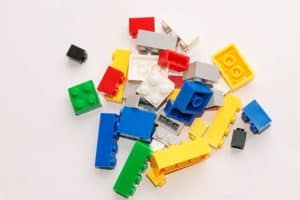I spend a fair amount of time talking to my children about money. I tend to begin the conversations when we are trapped in the car together. I find a captive audience is often an attentive one.
Once, on an hour long drive to my parent’s house, I introduced my five-year-old son to the concept of mortgages and credit cards. The next day I sat on the couch depicting graphs with variable interest rates. It sounds ridiculous, but he was mesmerized to see how quickly debts can rise.
My son has always been mathematically advanced and because he is capable of understanding complex numbers I take every opportunity to teach him about money management. The way I see it money makes the world go round and like it or not our civilization is dependent on the transfer of currency from one person to another. As long as you need food and shelter you will need to find a way to pay for them.
Some of my friends believe I am teaching my children too young, but the truth is children are inquisitive little creatures and if you ignore the topic your children will most likely create their own misguided dialogues about money. In a time when credit cards are used more often than cash the waters of money management can become quite murky in a child’s mind.
If you don’t believe me here is a perfect example. When my son was four he loved turning our house into a grocery store. One afternoon he arranged a bunch of fake plastic food along the couch cushions and instructed me to buy whatever I wanted. He handed me a reusable bag and off I went adding plastic carrots, corn, blueberry muffins, pancake mix and chocolate chip cookies. When I reached the checkout line he began to ring up my groceries.
That Christmas my son received a cash register from his grandparents and he was so eager to scan my groceries like a “real cashier.” The cash register had a little button on top and when he scanned each item it beeped and audibly announced its price. When his pretend conveyor belt was all clear he pressed the total button and the register reported the amount I owed. “That will be $40.32,” he said. I pulled the fake money out of my plastic toy wallet and counted out $40.32. That’s when my son said, “mom just use your credit card then you don’t need any money.”
“Well,” I told him, “I don’t need any money now, but I will need to pay the bill later.” His puzzled little face stared at me for a moment. Then he explained that credit cards were magic and that no payment was ever necessary. Sure enough he passed that toy credit card through the register’s slot and my balance magically turned to zero.
Of course, it makes perfect sense that my son would think this way. At the store he sees me pull a shiny, rectangular piece of plastic out of my wallet and voila my groceries are bagged and we walk out to the car. He doesn’t watch me log in to my bank account later that month to pay my credit card bill.
So many monetary transactions occur behind the scenes that it’s no wonder children don’t understand much about money. I remember going to the bank with my dad to cash his checks or going to the ATM so he could retrieve cash. Now banks automatically deposit our paychecks and just about every establishment I frequent accepts credit cards. My children rarely see dollar bills or coins in my hand.
I try my best to be honest with my children and when it comes to finances I share as much as I can about our own successes, trials and tribulations. This includes talking a lot about past jobs, the importance of education and just as importantly how and when to spend money.
When my children ask for something I avoid the phrase “We can’t afford that” for a number of reasons. First, my children know that my husband earns a high wage. They are aware that their dad is a software developer and that he is highly compensated for his skills.
When my children ask for something I could very easily tell them “we can’t afford that,” but in most cases that would be a lie. To date we can afford everything they’ve asked us to buy. Instead I tell them that we all have to make important decisions about how to spend the money we earn.
Instead of saying “I can’t afford that” I say “Let’s think of other ways we might want to spend our money” or “I have other plans for our money.” Then we discuss the options or plans.
Say my son wants to purchase a toy. Before placing the desired object into the cart I might ask him “would you rather have a new toy or spend an afternoon with your brother at the pinball arcade”? Or “would you rather take a friend bowling or sign up for karate lessons?”
We can also talk about using that money to pay for something that benefits the entire family rather than purchasing a toy that only benefits him. Should we defer buying toys and games right now so we can save our money for a long term goal like a snowboarding trip or quite simply keep our money in our pocket and refrain from buying anything at all.
When I leave the decision in my son’s hands I find he often makes the choice to defer spending. By pausing to consider his choices he is less prone to senseless splurges.
This also helps my son recognize the difference between wants and needs. In a store he might want to buy something he saw on the shelf, but after we leave empty handed he will either forget about the item or decide he didn’t want it after all. New items look awfully shiny, but once he returns home he decides he doesn’t need one more toy.
It’s important to note this is not just about saying “no” to my kid. If my son mentions a toy or experience multiple times after that initial visit we will talk about it. We won’t immediately drive back to the store though. Instead we search online together for a lower price, wait for a sale or even check out second hand stores for cheaper options. We will also say no when it’s appropriate.
That four year old who thought credit cards were magical is now seven and while he doesn’t understand everything about money his decisions to save and spend are carefully considered.
Every summer he runs a lemonade stand that earns roughly $100 from generous friends and neighbors. With three summers under his belt, and one or two stands each summer, his savings now totals $400. He can now afford many of the toys he covets, but interestingly enough he rarely spends his money on new things.
If my son is skilled and lucky enough to become successful in a high paying occupation I want him to remember these early conversations about money. We’ve all heard stories about high income earners who needlessly blow their money. I want my son to understand that just because you can buy something doesn’t mean you should.
If, on the other hand, my son maintains a job with a lower salary I still want him to refrain from saying “I can’t afford that.” I want him to consider his options, reflect on the items or experiences before him, and remember that by mindfully spending he can align his purchases with his long term aspirations. It may take him longer to save for the things he wants but every time he avoids negative self talk and impulsive purchases he will find himself one step closer to his goals.



I love this so much – for me it absolutely starts with refusing to lie to my son about anything, even if it seems small and the white lie would make things “easier.” My goal as a parent isn’t to make his life as easy as possible, but the best, kindest life possible.
Now that I believe! I read your post about Santa and I could tell that you don’t condone of white lies. I try my best to shed light on the facts so that my kids can begin to make their own decisions and craft their own ideas about the world. If you don’t provide the facts they will create an alternative version of the truth for themselves.
This is a great approach. I also have a 7 year old son obsessed with all things money/finance. I don’t always have a clear sense of the message I want to send him about this other than to become a good steward of his resources, but I try to be honest when he asks a question about how something works or why we don’t buy something he “wants” in the moment because his friends have it. Language of choice is empowering, though.
We definitely teach our children to be ‘good stewards of their resources.’ It’s an extremely important factor in decision making for adults and children. I try to remember that I don’t always need to have the right words in the moment. We often talk about saving and spending the next day after we’ve had some time to further contemplate our decisions. If we spend our money we talk about whether or not that decision was wise. If we don’t spend we talk about whether or not we regret that decision and what we would do the same or differently next time. Thanks for the comment!